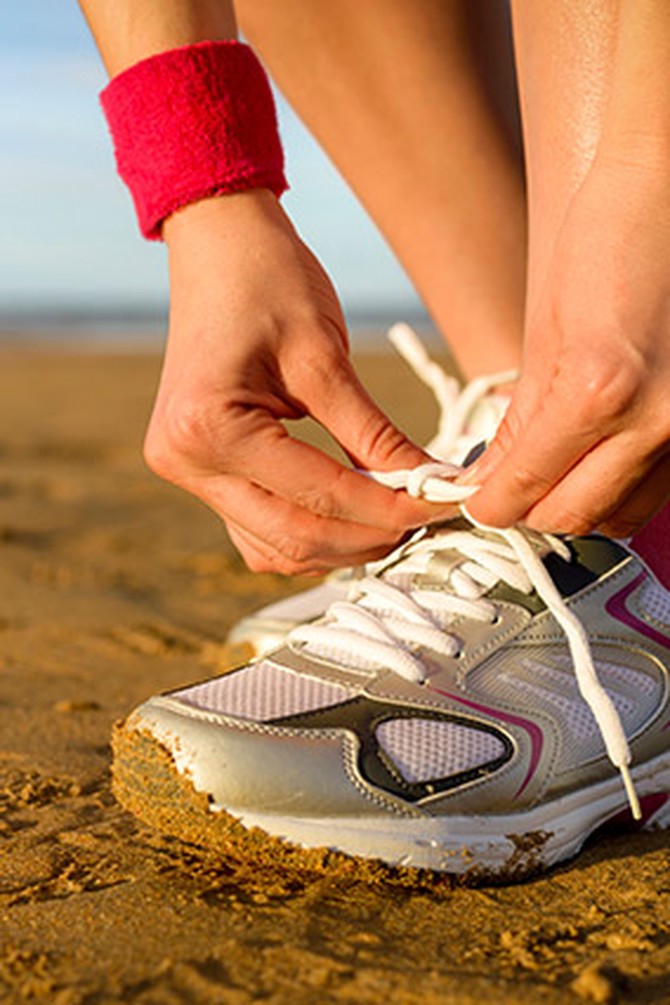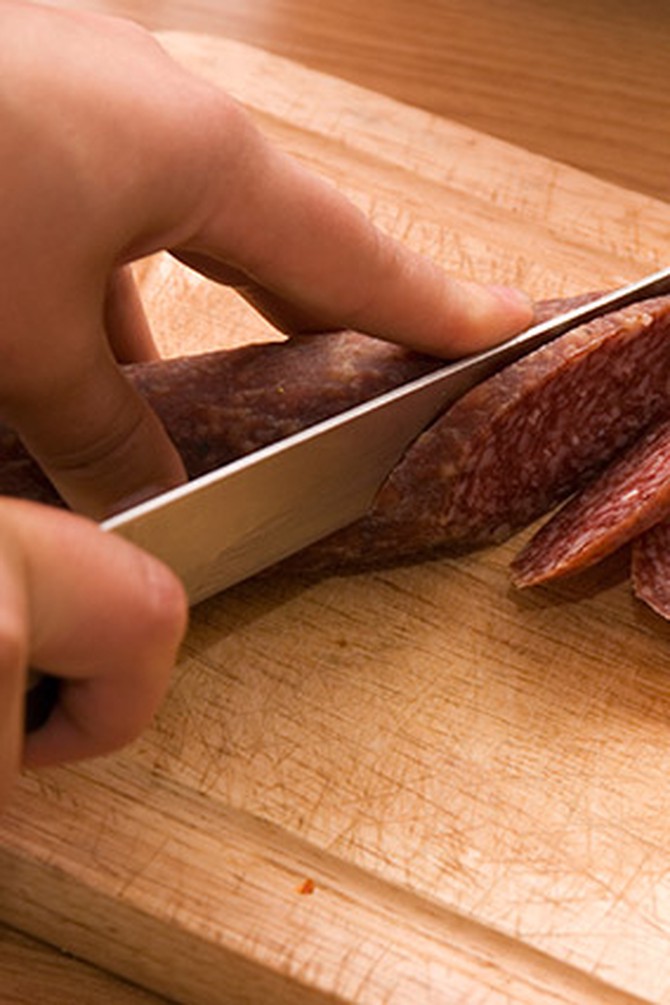Life Skills You May Need to Relearn
Sometimes, new research inspires us to re-examine old know-how (think: shoelace-tying).
By Jena Pincott

Photo: Thinkstock
To Handwrite
Sure, you don't really need to pick up a pen again (one in three of us hasn't used one in six months for anything but a signature). But know this: Handwriting switches on a cluster of brain cells, the reticular activating system, that engages the brain more deeply than typing. A University of Washington study found that when kids wrote, their ideas flowed more freely with pencil-on-paper than with fingers-on-keyboards. (Writers Neil Gaiman, J.K. Rowling and Annie Proulx can attest—they write entire novels in longhand.) In another study, adult students recognized Mandarin words better, and retained them for longer, if they had written the strokes than if they typed them. Sharp point, sharper memory.

Photo: Thinkstock
To Tie Your Shoes
One tiny twist, literally, makes all the difference when tying shoelaces that don't come undone. This TED Talks video shows us the little-known right way in three minutes. (Hint: Wrap the lace in the opposite direction than usual.) We may never trip over ourselves again.

Photo: Thinkstock
To Dish It Out Differently
We were all taught to "sandwich" criticism between big fluffy layers of compliments (you're doing great—just one thing, but great). This is gentle, but recipients tend to take away the "bread" only, not the "meat," finds a study at the University of Chicago Booth School of Business. Praise-heavy feedback was fine for novices: It encouraged them to improve. But it had the opposite effect on "experts," people with advanced knowledge (in French or environmental awareness, for example). What works to motivate them—which may require some fine-tuning on your part—are negative feedback (albeit matter-of-fact and precise) and constructive suggestions ("what if"). More protein, fewer empty carbs.

Photo: Thinkstock
To Cough the Right Way
A sanctimonious child might have already informed you that coughing or sneezing into your hand isn't okay because you'll just spread germs. Cough in the crook of your elbow instead (if you don't have a tissue). As salubrious as this advice is (and ordained by the Centers for Disease Control), it likely goes against decades of habit. Alas, there are no easy tricks for how to elbow-cough naturally. It just takes mindfulness and practice, perhaps reinforced by one of those Sesame Street viral-video sensations.

Photo: Thinkstock
To Make Audrey Hepburn Eyes
We love the "barely there" look, so why ever struggle with eyeliner again? Only if we're inspired by a new study, published in PLOS One, in which female faces were judged as more likeable, cooperative—and, the shocker, competent—when wearing conspicuous makeup than barefaced. They appeared more trustworthy, too, except when they wore gobs of the stuff—which we can avoid by brushing up on these classic makeup application techniques. (Note: The study received cosmetics-industry funding.)

Photo: Thinkstock
To Read a Story
Sad stat: 42 percent of us never pick up another book after college graduation (we surf the Web instead). Would you go back to "slow" reads—fictional stories, novels—if you knew they could help you navigate the real world? A fMRI study at York University found that when people followed the emotional complexities of a story, their brain activity looked like it did when sorting out others' thoughts, feelings and intentions in actual social interactions (as in a simulation of reality). Indeed, people really do become more socially intelligent after reading fiction, found a study on empathy at the University of Toronto. (Francine Prose's Reading Like a Writer will show you how to fall in love with novels again.)

Photo: Thinkstock
To Study (and Make it Stick)
Sorry, last-minute crammers. It appears that knowledge is stickiest when we space out our study sessions—such as 15 minutes over four days rather than a marathon hour—found a major Kent State University study. It sounds counterintuitive, but larger gaps between study sessions lead to better retention than too-brief ones. The brain needs time to build neural scaffolding—in part by consolidating memories and associations. The optimal break between sessions: 10 to 20 percent of the time we want (or need) to retain info, the researchers found. (For next week's scuba certification exam, study every other day; revisit details monthly to remember them next year.)
Next: Life skills you can learn in 29 minutes (for free)
Next: Life skills you can learn in 29 minutes (for free)
Published 08/14/2013

